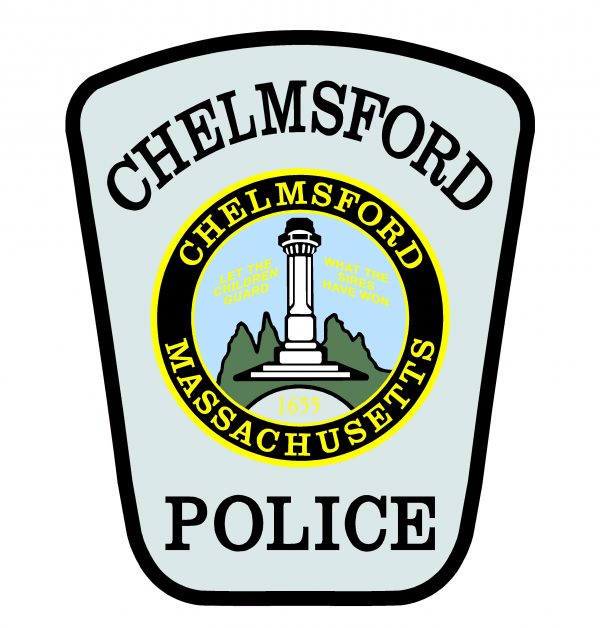Chief James M. Spinney
2 Olde North Road
Chelmsford, MA 01824
For Immediate Release
Saturday, Nov. 17, 2018
Contact: John Guilfoil
Phone: 617-993-0003
Email: john@jgpr.net
Chelmsford Police and Board of Health Warn of Potential Exposure to Measles
CHELMSFORD — The Chelmsford Police Department, Chelmsford Board of Health, local health officials and the Massachusetts Department of Public Health (DPH) are alerting residents about a second case of measles that was recently diagnosed in the Lowell region.
The DPH confirmed that an individual was diagnosed with measles on Nov. 15. During the infectious period, the individual was present in a number of locations that could have resulted in exposures to other people, including Chelmsford.
The individual was at the Chelmsford T.J. Maxx, 288 Chelmsford St., on Sunday, Nov. 11 between 3-7 p.m.
If you have any questions you may call the Chelmsford Board of Health today, between 3-5 p.m., Sunday between 9-11 a.m., or during normal business hours of 8:30 a.m. to 4:30 p.m. Monday through Friday. The Chelmsford Board of Health phone number is 978-250-5241.
Measles is very contagious. An earlier patient was diagnosed with measles on Nov. 8. Both diagnoses were made at Lowell Community Health Center (Lowell CHC). However, “there are no known links between the two cases,” said State Epidemiologist Dr. Catherine Brown. “Our efforts now are to identify people who may be at risk of getting ill and to get them vaccinated. Getting vaccinated within 3-5 days of an exposure can reduce the likelihood of getting measles.”
In addition to the Chelmsford retail store, exposures to this individual may have also occurred at the following locations and times:
- Lowell Community Health Center, 161 Jackson St., Lowell, Thursday, Nov. 15, from 4-9 p.m.
- Walmart Supercenter, 333 Main St., Tewksbury, Thursday, Nov. 15, 5-8 p.m.
People who are not immune and visited any of the locations on the below specified dates and times may be at risk for developing measles. Anyone who visited these locations on any of these dates during the times listed is advised to contact their health care provider to confirm their immunization status. Lowell CHC is reaching out to its patients who were potentially exposed there, and has established vaccination clinic hours for those patients.
“Early symptoms are similar to having a cold,” Chief Spinney said. “If you believe you may have been exposed to this person or if you believe you may have symptoms of measles, please contact your health care provider and try to limit your exposure to others.”
DPH urges all those who do not know their measles immunization status to get vaccinated with at least one dose of Measles, Mumps, and Rubella (MMR) vaccine. Measles vaccine given within 72 hours of exposure may prevent measles disease, and vaccination beyond this window will provide protection from subsequent exposures. DPH, the Lowell Health Department and Lowell CHC are working to contact individuals at high risk for exposure.
Those who were exposed and begin to develop symptoms of measles should call their healthcare provider before visiting an office, clinic, or emergency department. Visiting a healthcare facility may put others at risk and should be avoided. Anyone who has had measles in the past or has received two doses of the vaccine is unlikely to develop measles even if exposed.
Early symptoms of measles occur 10 days to 2 weeks after exposure and may resemble a cold (with fever, cough, runny nose, and red eyes) and a rash occurs on the skin 2-4 days after the initial symptoms develop. The rash usually appears first on the head and then moves downward. The rash typically lasts a few days and then disappears in the same order.
People with measles may be contagious up to four days before the rash appears and for four days after the day the rash appears.
People who have had measles, or who have been vaccinated against measles per U.S. Centers for Disease Control (CDC) recommendations, are considered immune. The CDC recommendations are:
- Children should receive their first dose of Measles-Mumps-Rubella (MMR) vaccine at 12-15 months. School-aged children need two doses of MMR vaccine.
- Adults should have at least one dose of MMR vaccine. Certain groups at high risk need two doses of MMR, such as international travelers, health care workers, and college students. Adults born in the U.S. before 1957 are considered immune to measles from past exposures.
For additional information, contact your local health department or DPH at 617-983-6800. To learn more about measles, visit the DPH website here.
###
Discover more from John Guilfoil Public Relations
Subscribe to get the latest posts sent to your email.
